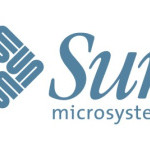- Industri: Computer
- Number of terms: 4807
- Number of blossaries: 1
- Company Profile:
Sun Microsystems is a multinational vendor of computers, computer software and hardware, and information technology services.
A program does not access all of its code or data at once with equal probability. Having recently accessed information in cache increases the probability of finding information locally without having to access memory. The principle of locality states that programs access a relatively small portion of their address space at any instant of time. There are two different types of locality: temporal and spatial.
Industry:Computer
The ability to perform an operation, act, or function with a computer resource (for example, run, modify or show). The means by which the ability is explicitly enabled or restricted in some way.
Industry:Computer
A principal native to the operating system on which the J2EE platform is executing.
Industry:Computer
A predefined XML tag for character data that means "don't interpret these characters," as opposed to parsed character data (PCDATA), in which the normal rules of XML syntax apply. CDATA sections are typically used to show examples of XML syntax.
Industry:Computer
System model where there are many processing elements, but they are designed to execute the same instruction at the same time; that is, one program counter is used to sequence through a single copy of the program. SIMD is especially useful for solving problems that have lots of data that needs to be updated on a wholesale basis; such as numerical calculations that are regular. Many scientific and engineering applications (such as, image processing, particle simulation, and finite element methods) naturally fall into the SIMD paradigm. See also array processing, pipeline, vector processing.
Industry:Computer
A preconfigured JMS object (a resource manager connection factory or a destination) created by an administrator for the use of JMS clients and placed in a JNDI namespace.
Industry:Computer
System model where many processors can be simultaneously executing different instructions on different data. Furthermore, these processors operate in a largely autonomous manner as if they are separate computers. They have no central controller, and they typically do not operate in lock-step fashion. Most real world banks run this way. Tellers do not consult with one another, nor do they perform each step of every transaction at the same time. Instead, they work on their own, until a data access conflict occurs. Processing of transactions occurs without concern for timing or customer order. But customers A and B must be explicitly prevented from simultaneously accessing the joint AB account balance. MIMD relies on synchronization mechanisms called locks to coordinate access to shared resources. See also mutual exclusion, mutex lock, semaphore lock, single-lock strategy, spin lock.
Industry:Computer
A portion of a JSP page that is recognized by a JSP translator. An element can be a directive, an action, or a scripting element.
Industry:Computer
Synchronization variable to implement the mutual exclusion mechanism. See also condition variable, mutual exclusion.
Industry:Computer
